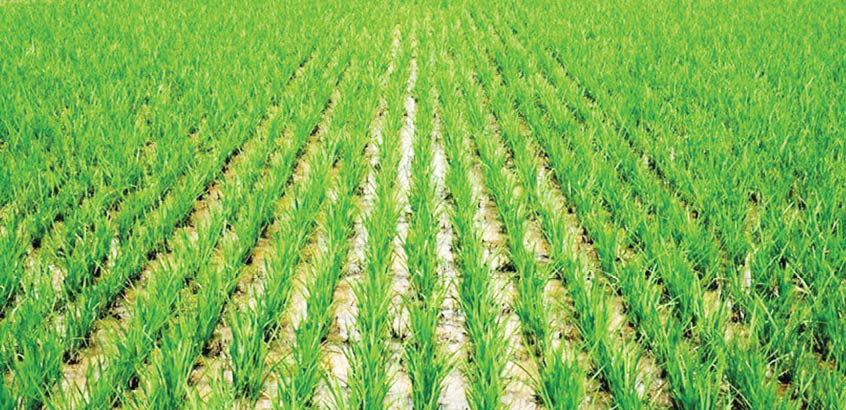Many rice farmers in Kwara State are not smiling. But the issue is not about availability of rice or lack of paddy, their major concern is how to repay the several millions given in input through the Central Bank of Nigeria (CBN) Anchor Borrowers’ scheme that has revolutionised the production of the staple around several communities in the state.
The impact of the programme, many believed, shot the state to the limelight in rice production, making it one of the highest contributors to the rice pyramid championed by the administration of the former president, Muhammadu Buhari.
However, the failure of the rice farmers who benefited to repay the loan is threatening the continuation of the scheme hitherto considered highly successful and has affected seamless replication in other crops and the farming value chain.
But what actually is the problem the CBN, associations, farmers and other stakeholders in the rice value chain are chewing that appears too bitter to swallow?
PLWDs seek more inclusion in NEDC supports, activities
10 die as Jigawa records 91 suspected diphtheria cases
According to findings by Daily Trust on Sunday, the issues hampering the recovery of the funds from the farmers include lack of political will, wrong timing of input disbursement and some political farmers who hijack the process, thus denying the real smallholders the opportunity of having access to the funds, among others.
Speaking on the issue, a rice farmer and former secretary of the All Farmers Association of Nigeria (AFAN) in Kwara State, Alhaji Mukaila Salaudeen, said although there were ongoing efforts to recover the debt, some major stumbling blocks needed to be cleared.
“Both the government and farmers are at fault on the issue. Some people who are not original farmers sold the inputs after collection, and when it was payback time, there was nothing to use to defray the debt.
“On the part of government, they didn’t distribute the input on time; and we all know that farming is periodic, it has time. Imagine distributing inputs for rice for planting this time when it is not dry season; they will only collect it and sell.
“So the government must be aware that they have to supply the inputs at the right time. Planting rice should start around June/July. These are some of the problems militating against the payment.
“Repayment at this period of difficulty and serious economic hardship will be difficult. Government will only be expending funds unnecessarily to mobilise those they will engage to go round and collect the money, which will not yield any fruitful result or achieve any meaningful purpose,” he noted.
He advised that the affected farmers should be summoned, with a view to discussing when they think they would be able to repay, or they could spread the payment plans across fresh disbursement.
“This will be a win-win situation that will give the farmers the benefits of another funding opportunity towards farming from whence they can commence instalmental repayment. But now, the reality is that they cannot get a kobo from the farmers, even if they threaten them with arrest. Or better still, the government can write off the debt. Majority of the farmers don’t even have money to farm this time, let alone of any repayment,” he submitted.
The former AFAN scribe said that going forward, “The government must do well to identify the real farmers against empowering political ones like some of the cases we have now, who will not pay anything back, and thus, kill the programme.
On those that are affected, Alhaji Salaudeen said, “The funds were distributed through associations. The RIFAN alone had about 6,000 farmers who got around N200,000/N250,000 each, excluding others like maize farmers, who got 250 slots.”
He advised the government to ensure that the inputs get to farmers to prevent a situation where some distributors used about half of the inputs for themselves but claim that they distributed it to farmers, “which was what happened in the cotton issue.
“That was majorly embezzled and squandered as not up to 10 per cent of the real cotton farmers benefited. After identifying the real farmers, the government should help them to write off the debt but recover every penny from the political farmers. How can two or three people hold the whole association to ransom despite that the government gave them inputs, which they refused to give the farmers but embezzled the whole thing,” he added.
For the former chairman of the RIFAN who is now the coordinator of special projects, Ahmed Adamu, “The first issue is wrong timing and giving dry season inputs during the rainy season, which was then affected by the flood that eventually led to reduction in expected yield.
“This situation is coupled with the distribution of incomplete inputs while a large number of the farmers are not willing to pay back the loan. They are capitalising on the issue that no punishment was included in the design of the scheme for defaulters who still go on to access other loans for other crops. There is no will on the part of the farmers to pay back.”
Adamu, who is now a member of the House of Representatives Committee on Agriculture, said there was the absence of interventions and the development is already affecting farming activities in the state and country.
He said a bag of NPK fertilizer, which is now N27,000 from N5,000, was out of the reach of the real farmers, adding that “about 25,000 hectres of rice farm were given to 25,000 farmers in two interventions since 2015 for RIFAN member alone, outside several other associations that engage in maize, cassava and others.”
He said that while the scheme exposed the youth and other demographics to the fact that there is money in farming, the default in the loan repayment is causing serious issues.
“They do a one man per hectare budget, which will look at the economy of the scale that involves the seed, nasal sprayer, fertiliser and others.
“I would advise the government to recapitalise the real farmers because the situation is caused by the current hardship in the country. That is the only way out now. No farmer now can afford to pay N250,000. A solar water pumping machine now costs over N700,000 and no farmer can afford that now. The government should consider giving the farmers subsidy.
“The Anchor Borrowers’ scheme lacked monitoring. It is the farmers that will take care of that. Again, those that supply the inputs are not local contractors who can be held when supplies have issues. Local contractors should be engaged in the next disbursement for proper accountability. Government should subsidise inputs and recapitalise the real farmers, not the political farmers,” he stressed.
He said the issue had seriously affected the rice value chain, leading to many rice millers closing production.
“Now, rice millers have been seriously affected in the value chain and many of them have stopped production,” he said.
He said the House Committee on Agriculture would deliberate on the issue for a way out.
On his part, the chairman of the Rice Millers Association of Kwara State, Ayo Ajisefini, said the situation had seriously affected their business.
“The problem is not the farmers but the associations through which the inputs were distributed. Those are the ones that should be held to account.
“Did they give it to the real farmers or share it with their friends? Those on the recovery team should start their work from the associations, get the database and verify if the farmers were given what they really desired or wanted.
“I am not a rice farmer, but I have foreseen this problem right from the onset, and I am not surprised with what is playing out now. As a miller, the association will tell us that it is the federal government that would off-take the rice, that we only need to supply like four bags each.
“Those you can find in the milling chain are the big players. Some of us have been on holidays since January. We have not produced anything because we can no longer get paddy. It is not easy, I must tell you.
“The Anchor Borrowers’ scheme has even turned some farmers into lazy people waiting for the government to fund them or they will say they are not farming.
“As a stakeholder in the rice value chain, one of the reasons the scheme failed was because of late distribution of inputs and the greediness of the farmers who still go to one to collect it despite being aware of the implications.
“The economy of production they gave the farmers was not used for distribution, and that is why you see 25kg of paddy rice given to a farmer that needs 40kg. So it will affect other disbursements, and I don’t think the CBN is using the technical know-how to distribute the inputs.
“There is a need for a total review of the whole process if they want to really make any headway going forward. It should not be business as usual,” he said.




